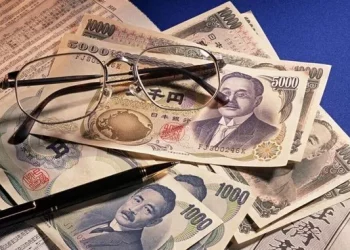In the world of currency, the notion of old money losing value or becoming obsolete is not unfamiliar. As economies evolve and technology advances, countries periodically introduce new banknotes or coins while gradually phasing out old ones. In Japan, the question of whether old Japanese banknotes expire is an important one for collectors, travelers, and even those who might possess old currency for nostalgic or historical reasons.
Japan, with its rich history, culture, and economic significance, presents a unique case when it comes to the handling and usage of its currency. The Japanese yen (JPY) is one of the world’s most traded currencies, and over the years, various versions of its banknotes have been introduced. However, like many currencies around the globe, there are specific rules surrounding the validity and expiration of old Japanese banknotes. This article explores the fascinating world of Japanese currency, delving into the lifespan of old banknotes, the regulations governing their exchange, and the steps people can take if they find themselves in possession of outdated bills.
The Japanese Yen: A Brief History
The yen (JPY), Japan’s official currency, was first introduced in 1871 during the Meiji Restoration. Since then, Japan has seen several iterations of the yen and its banknotes. Over the years, the Bank of Japan (BoJ) has issued various series of banknotes, each reflecting the country’s evolving political, cultural, and economic landscape. While the design and security features of these banknotes have changed over time, the yen has maintained its status as a reliable and trusted currency, both domestically and internationally.
Japan’s currency is typically made up of 1,000, 5,000, and 10,000 yen notes, with smaller denominations like 1 yen coins in circulation as well. The design of each series of notes is unique, featuring important figures from Japan’s history, famous landmarks, and various cultural symbols. For example, the 1000 yen note from the 2004 series features the famous author Natsume Sōseki, while the 10,000 yen note in the same series displays the likeness of Yukichi Fukuzawa, a prominent intellectual and educator.
Do Old Japanese Banknotes Expire?
The short and direct answer is: no, old Japanese banknotes do not expire. The yen, like most major world currencies, does not have a set expiration date for its banknotes. As long as a banknote remains in a state that allows it to be used for legal transactions, it retains its full value. This means that even banknotes that are decades old or part of an older series of yen can still be used in Japan for everyday transactions.
However, there are specific circumstances under which old Japanese banknotes may lose their value in practice, or may be difficult to use. Let’s explore these situations further.
The Role of the Bank of Japan (BoJ)
The Bank of Japan, as the central bank of the country, is responsible for the issuance of yen banknotes. It also monitors the circulation of these notes and decides when to introduce new series or design changes. The BoJ often issues new series of banknotes to enhance security, improve the durability of the currency, and to reflect changing cultural and historical values. When a new series of banknotes is issued, older series may no longer be used in day-to-day transactions, but they do not lose their legal status as currency.
The Withdrawal of Older Banknotes
Although old Japanese banknotes do not technically expire, the Bank of Japan occasionally withdraws certain series of banknotes from circulation, typically for reasons related to security features or changes in economic conditions. The most notable instance of this occurred in 2004 when the Bank of Japan began circulating new 1,000, 5,000, and 10,000 yen banknotes as part of a series upgrade. This new series featured enhanced security measures, such as watermarks and holograms, to combat counterfeiting and maintain the integrity of Japan’s currency system.
Following this issuance, the older series of banknotes, known as the “Series E” notes, were gradually phased out. However, they did not expire immediately. The Bank of Japan allowed a transition period during which these old banknotes could still be exchanged for the new series at any bank or financial institution in Japan.
For instance, when the 2004 series was launched, there was an extended period during which the old banknotes could still be deposited into bank accounts or exchanged for the new currency. This ensured that individuals holding old banknotes had a reasonable amount of time to convert their money.
Legal Tender Status and Expiration
While the Bank of Japan occasionally removes certain older banknote series from circulation, they do not lose their legal tender status unless officially decommissioned by the BoJ. This means that if an individual possesses a withdrawn series of banknotes, they can still exchange them for current currency or deposit them into a bank account. The only instance in which old banknotes would lose their legal tender status would be if the Bank of Japan officially declares them no longer valid for exchange, a move that has not occurred for any series of banknotes thus far.
In the case of individuals who have accumulated older yen notes, these bills can still be exchanged for their full value at any bank in Japan or with the Bank of Japan itself. If someone has banknotes from a withdrawn series that are in poor condition (e.g., torn or damaged), they may still be exchanged, though the process may require additional steps.
Damaged and Worn Banknotes
Another important factor to consider when dealing with old Japanese banknotes is the condition of the currency. While the BoJ allows the exchange of old banknotes, they may reject notes that are severely damaged or worn to the point where they can no longer be recognized as legitimate currency. This is a common practice worldwide, as central banks and monetary authorities often have specific guidelines on how to handle damaged currency.
If someone is in possession of worn or torn banknotes, the best course of action would be to take them to a bank for examination. The bank will assess the damage and determine whether the notes can still be exchanged or whether the individual needs to submit them to the Bank of Japan for further processing. In some cases, if the damage is significant, the individual may not receive the full value of the note, but they will still be compensated for a portion of its face value.
The Importance of Banknote Collecting
For those who hold old Japanese banknotes, whether for personal, historical, or collector purposes, these bills can still hold significant value. The rarity of older series or specific denominations may make them desirable for collectors. Additionally, vintage Japanese banknotes, particularly those with unique designs or historical significance, can fetch considerable prices in the international collectibles market.
While old Japanese banknotes might not “expire,” collectors must still keep them in good condition to preserve their value. As with any collectible, the value of banknotes can fluctuate based on demand, rarity, and condition, and it’s essential to consult with experts or dealers in the field to understand the potential market for a specific note.
Conclusion
To sum up, old Japanese banknotes do not technically expire. They continue to hold legal value and can be exchanged at financial institutions, even after being withdrawn from circulation. However, while they do not have an official expiration date, their usability is subject to factors like their condition and the withdrawal of older series by the Bank of Japan. Individuals who possess old or withdrawn banknotes should ensure they understand the rules and options for exchanging them to avoid any inconvenience.
In today’s world, old Japanese banknotes remain an integral part of the country’s financial history, and their value extends beyond mere currency. Whether for investment, collection, or nostalgic reasons, owning a piece of Japan’s past can be both financially and historically rewarding. The key takeaway is that, while the design of currency may evolve, the yen remains a reliable and trusted symbol of Japan’s economic stability, offering a fascinating glimpse into the country’s financial journey over the years.
Related Topics:



























